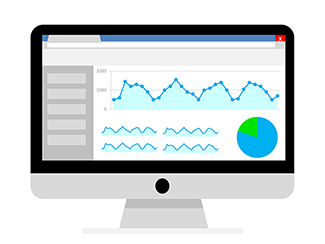What is online marketing? The difference between ads and "organic" search resultsSuppose you use Google’s online advertising platform Google Ads to place ads to promote your products or services. When users search for terms related to your business on Google, your ads may appear at the top or bottom of the Google search results page with advertising labels. The placement of your ad depends primarily on the relevance and usefulness of the ad and the information users are searching for, your bid, and several other factors.
Other sections on the search results page will show "natural" search results. These are non-paid website links, the content of which is directly related to the information users are searching for. The higher the relevance of the website to the search term, the higher the link will appear in the results. Your related website can be displayed here, but your ads cannot.

The advantages of online advertisingUsing online advertising, you can target your ads to your ideal target customers and filter out audiences you don’t want to reach
When using Google Ads to advertise online, you can use different targeting methods to attract potential customers who are searching for your products or services. This can effectively ensure that every point of your advertising investment is "spent on the edge" and only used to reach those users who are most likely to become your customers.

If you display ads next to search results on the Google search network, you can choose keyword targeting methods to show ads to users who are searching for related terms. You can also choose to show ads at specific times of the day, and specify location and language.
If you advertise on the Google Display Network (i.e., sites that display Google ads), you can select the ages of users you want to reach, the types of sites they visit, and areas of interest to further refine your positioning condition.
More main benefits of advertising online are as follows:
Control budgetHow much money to invest is completely up to you, and you only need to pay when a user clicks on your ad.
 Know your advertising effectiveness
Know your advertising effectivenessQuickly monitor the effectiveness of your ads and easily make adjustments to improve performance.
 Expand Coverage, wide influence and everywhere
Expand Coverage, wide influence and everywhereNo matter if the customer is using a computer, tablet, mobile phone or in an application, they can communicate and interact with customers.
 According to your target volume Create your own ads
According to your target volume Create your own adsMake full use of different ad formats and functions to customize your ads according to your various business goals, such as adding a clickable "call" button to the ad to attract more calls, or using video ads to show Brand style.









 Know your advertising effectiveness
Know your advertising effectiveness Expand Coverage, wide influence and everywhere
Expand Coverage, wide influence and everywhere According to your target volume Create your own ads
According to your target volume Create your own ads